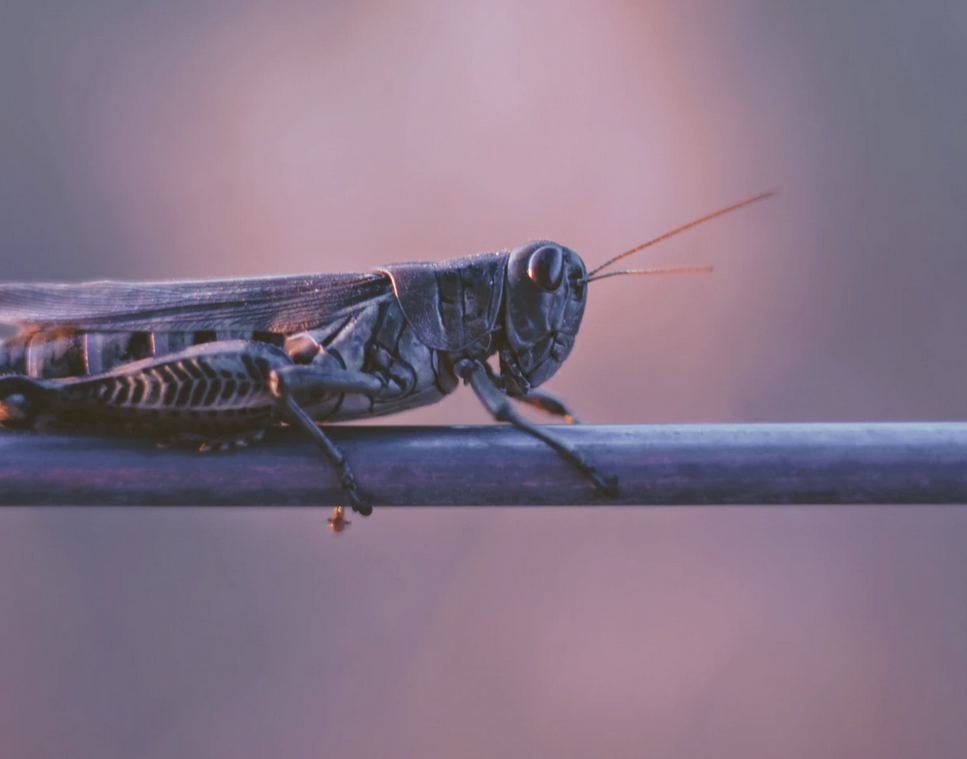Guest Post - 8 Tips for Getting Rid of Garden Pests
There is nothing worse than noticing harmful pest destroying your gorgeous plants and the feeling of helplessness because of these gritty crawlers. Almost every gardener in the world experiences pest infestation. Thus, it is essential to carefully manage the problem to make sure you don't kill beneficial microbes or damage the top layer of your soil by using pesticides. Hence, we have listed down eight most helpful tips that would allow your favorite plants to grow and bloom without any worry of a pest attack.
Healthy Soil
A healthy soil supplies the required amount of nutrients, root support, and oxygen to the plant. Researches suggest that healthy soil can support the plant in repelling pest attacks. Hence, building a fertile, living, and healthy soil is the first and foremost step of countering a pest attack.
These two practices can help you maintain healthy soil for your plant:
Compost Bin
Use a compost bin and make a habit of adding 1-2 inches of decomposed compost to your garden every spring to promote the required nutrients and improve soil structure.
Soil Disturbance
Many people used to believe that turning of soil would promote the plant's growth by stimulating the movement of the required nutrients. However, recent studies suggest that frequently turning of soil hampers the growth of a plant as it results in soil erosion and has a harmful effect on earthworms and microbes.
Getting Rid of Aphids
Aphids are among the most common pests that can destroy your garden if not dealt with. Aphids can attack various plants, including houseplants such as Cebu Blue, Philodendrons, and Begonias. Thus, it is essential to deal with this harmful pest without damaging your plant or soil. Here are a couple of tips to get rid of Aphids in no time.
Companion Plant
A companion plant like onion would help repel the aphids from attacking your plants. This is the easiest method of making sure your plants remain safe from this pest all year round.
Neem Oil
Dilute neem oil and spray it onto your plant to repel aphids attack.
Attract Beneficial Predators
While some insects are munching on your plants, there are some insects that you would find a friend in. Attracting these bugs can absorb a lot of your worries of pests as these bugs are natural predators of many pests. Some of these bugs are bees, praying mantis, ground beetles, ladybugs, and parasitic wasps.
These bugs will prey on harmful pests and promote your plant's growth through pollination as it is one of the most critical elements in the growth of several plants.
Check Leaves
The step of checking your leaves is one of the most important and vital steps in the fight against pests. If you miss this step, pests can overwhelm your garden, and there might be no option left apart from calling professionals or using harmful pesticides that can also damage your plants.
Most of the pests lay their eggs on the leaves' underside, and if they are allowed to hatch before taken care of, you would have an even bigger problem.
Metal Cans
Tender seedlings are at higher risk from any pest attack. Thus, it is essential to protect a plant in its early days. Cutworms can be one of the most dangerous pests for your plants in their early days. To protect your plant from this mulching crawler, take a metal can and cut both ends and use it to protect your seedling.
Eggshells
Eggshells have gained popularity in recent years when it comes to fighting off pests and rightly so. Apart from adding nutrients to your soil, eggshells are known to repel some of the most harmful pests without being a burden on your pocket.
Every gardener understands the harmful effects of a slug on their precious plants and the damage caused by these crawlers. This is where eggshells are most effective. Follow the steps below to prevent slugs from munching on your plants.
Take two to three eggshells and finely crush them.
Now identify the plant that is being attacked by slugs.
Spread crushed eggshells on the soil around the plant to prevent any slug from reaching the plant.
As eggshells decompose over time, repeat the following steps.
Use a Jar
If you face a pill bug infestation, follow the steps below to get rid of these harmful pests without any hassle.
Fill a jar with 1 tsp. sugar, 1 tsp. yeast and half a cup of water.
Now mix the ingredients to form a solution.
Bury the jar in the soil but keep its opening exposed and open.
This method would attract pill bugs and drown them. You can change the solution after every few days if you are facing a heavy infestation.
Cabbage Worms
No one likes to cut open a perfect cabbage to find dead pests and eggs in their delicacy. There are a few methods that can be used to prevent this from happening.
Planting early is one of the most helpful tips. By planting early, you would make sure that the plant is mature before worms attack the plant.
Another trick is to plant thyme and oregano as a companion plant as they would attract beneficial predators and protect your plant from worms.
Use tansy oil and spray your plants once in a while to repel any worms.
Author Bio
Kristina Mathew is a passionate gardener who loves to research regarding different plants and pests to increase her expertise in gardening. She currently writes for gardeningit.com, covering wide range of plants and flowers for her reader base.



